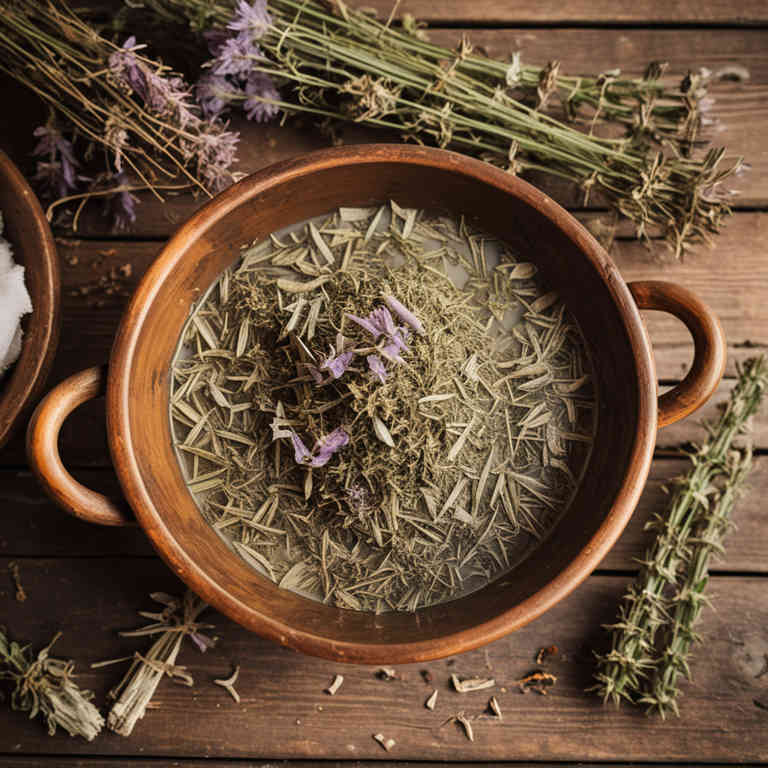Hyssopus officinalis bath for medicinal use

Hyssopus officinalis bath is a herbal preparation made from the dried leaves and flowers of the hyssop plant, known for its aromatic and therapeutic properties.
This bath is used in herbalism to support respiratory health, soothe sore throats, and promote relaxation due to its expectorant and antiseptic qualities. The plant contains compounds like flavonoids and essential oils that contribute to its medicinal effects. To prepare the bath, hyssop is typically steeped in hot water and then added to a warm bath for soaking.
It is often recommended for those experiencing congestion, coughs, or stress-related ailments.
Uses
Hyssopus officinalis bath has been used to promote respiratory health and alleviate symptoms of colds and coughs for centuries.
Historically, it was valued in ancient Greece and Rome for its aromatic and therapeutic properties, often used in baths to refresh the body and mind. Traditional herbalists also employed it to treat skin conditions and as a natural remedy for digestive issues. In modern times, the bath is still appreciated for its soothing effects, helping to reduce stress and improve circulation.
Its continued use highlights the enduring relevance of traditional herbal practices in contemporary wellness routines.
Benefits
Hyssopus officinalis bath has health benefits such as promoting relaxation, improving skin health, and supporting respiratory wellness.
This herbal preparation, derived from the hyssop plant, is known for its calming properties that can help reduce stress and anxiety. It may also help alleviate symptoms of respiratory conditions like coughs and colds due to its expectorant qualities. The essential oils in hyssop can soothe irritated skin and may have antimicrobial properties that help prevent infections.
Regular use of a hyssopus officinalis bath can contribute to overall well-being by enhancing mood and supporting the body's natural healing processes.
Constituents
Hyssopus officinalis bath active constituents include essential oils, flavonoids, tannins, and phenolic compounds.
These components contribute to the bath's therapeutic properties by promoting relaxation and reducing inflammation. The essential oils, particularly thymol and carvacrol, have antimicrobial and antifungal effects. Flavonoids support skin health and may enhance circulation.
Tannins help soothe irritated skin and may provide a mild astringent effect.
Preparation
To make Hyssopus officinalis bath, begin by gathering fresh or dried hyssopus officinalis herb.
Place 1 to 2 tablespoons of the herb into a heatproof container. Pour 2 quarts of water over the herb and bring it to a boil. Let the mixture steep for 15 to 20 minutes, then strain the liquid.
Add the infused water to a bathtub and fill with warm water, then soak for 15 to 30 minutes to enjoy the soothing effects of the herb.
Side Effects
Hyssopus officinalis bath may lead to skin irritation or allergic reactions in some individuals due to the presence of essential oils and other phytochemicals.
This herbal preparation is traditionally used for its purported soothing and antiseptic properties, often claimed to aid in respiratory and skin conditions. However, excessive use or prolonged exposure could result in dryness, redness, or increased sensitivity of the skin. People with sensitive skin or known allergies to related plants should exercise caution.
It is advisable to perform a patch test before using this bath and consult a healthcare professional if adverse effects occur.